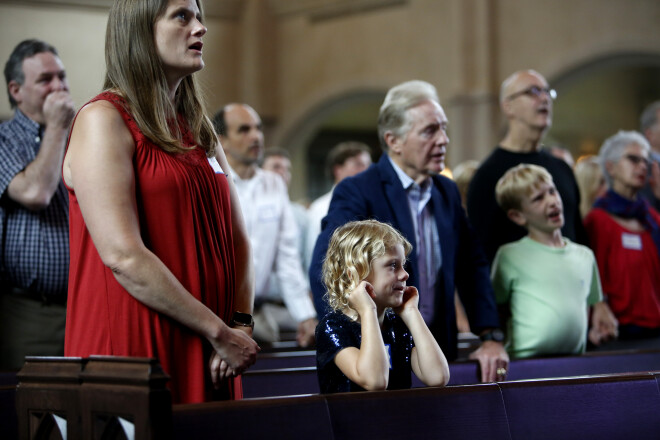The Church Where One Hears the Word and Celebrates the Sacraments

While we want to avoid a functional understanding of persons, at the same time what we most typically do says a lot about who we are. If you are a doctor, healing is connected to your being. So one way the tradition has defined what the Church is has to do with what it most typically, most characteristically, does.
In the Lutheran Augsburg confession, the Church is where the ‘Gospel is truly taught and the Sacraments rightly administered.’ These two actions conform to the two parts of our Eucharistic service Sunday by Sunday, the liturgy of the Word and Sacrament. We hear who Jesus Christ is, and so who God is, who we are, and where the world is headed. That Word also serves as corrective and guide for all of our life. And then we see, hear, and indeed consume that Word in the Eucharist. These are the core actions that produce by grace our very identity as Church. They are not our own creations, though we need to interpret the Word and adapt the form of the sacrament, but are rather received by us from the tradition, and ultimately from Christ.
It is worth noting that Church as the place of the practices of Word and Sacrament is a way of dealing with our discouragement about the Church. Though we may fall short of our calling in many ways, these remain, and have the power to make Christ known.
Read the ‘Church’ and ‘Sacraments’ in our Catechism. Compare it to the Augsburg Confession and the relevant sections of our own 39 Articles (found in the back of the BCP).



